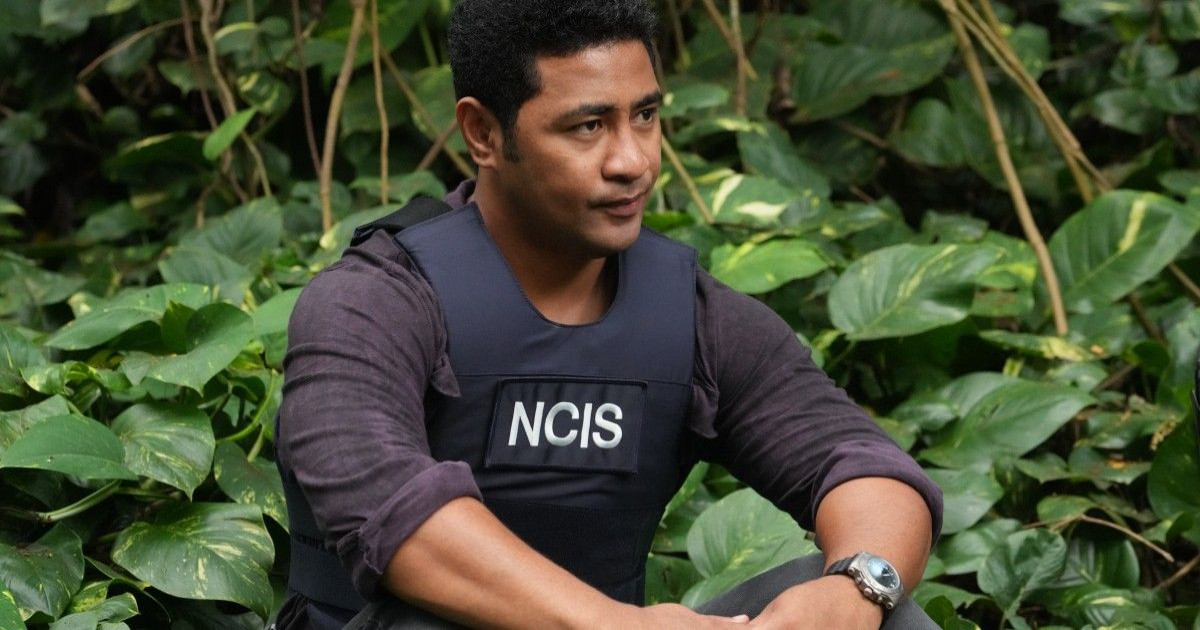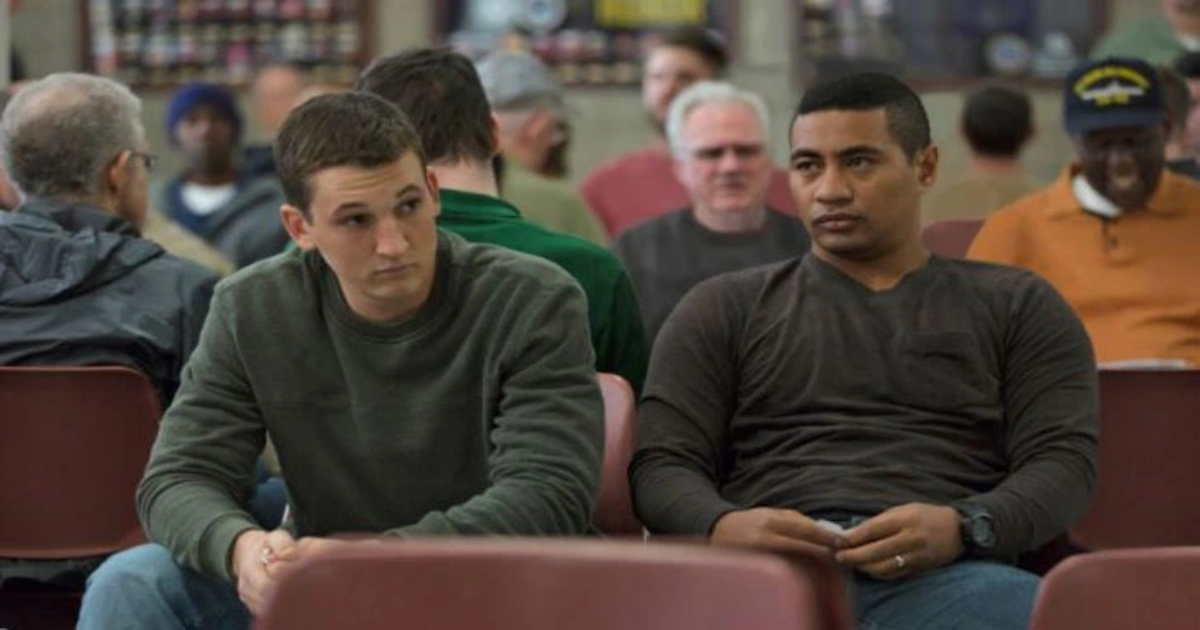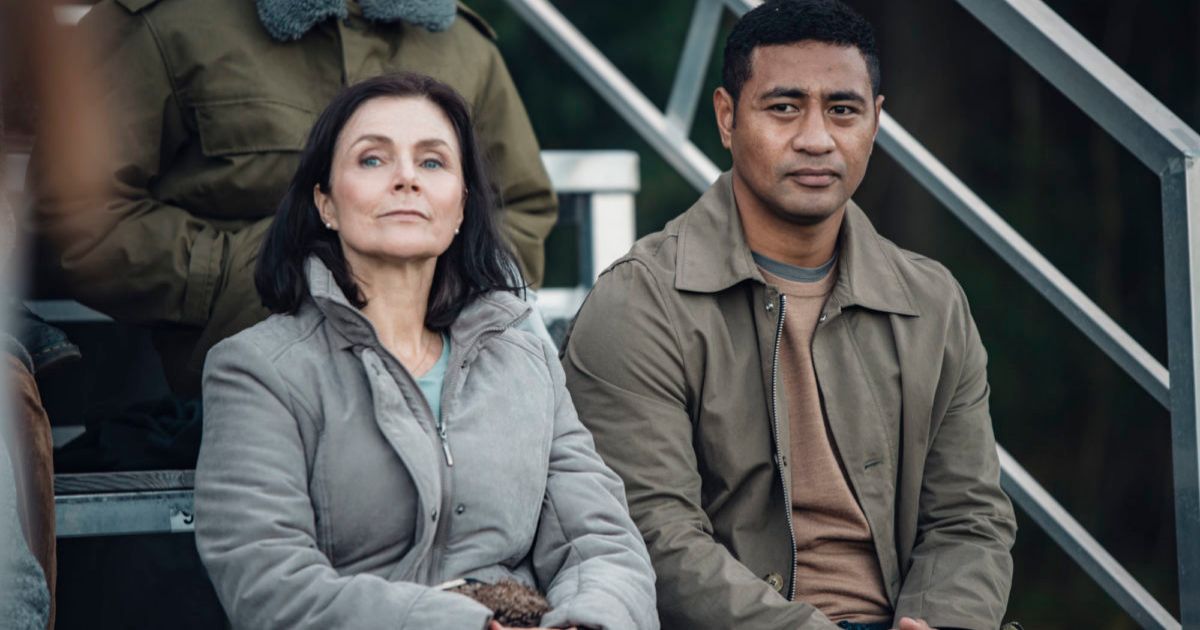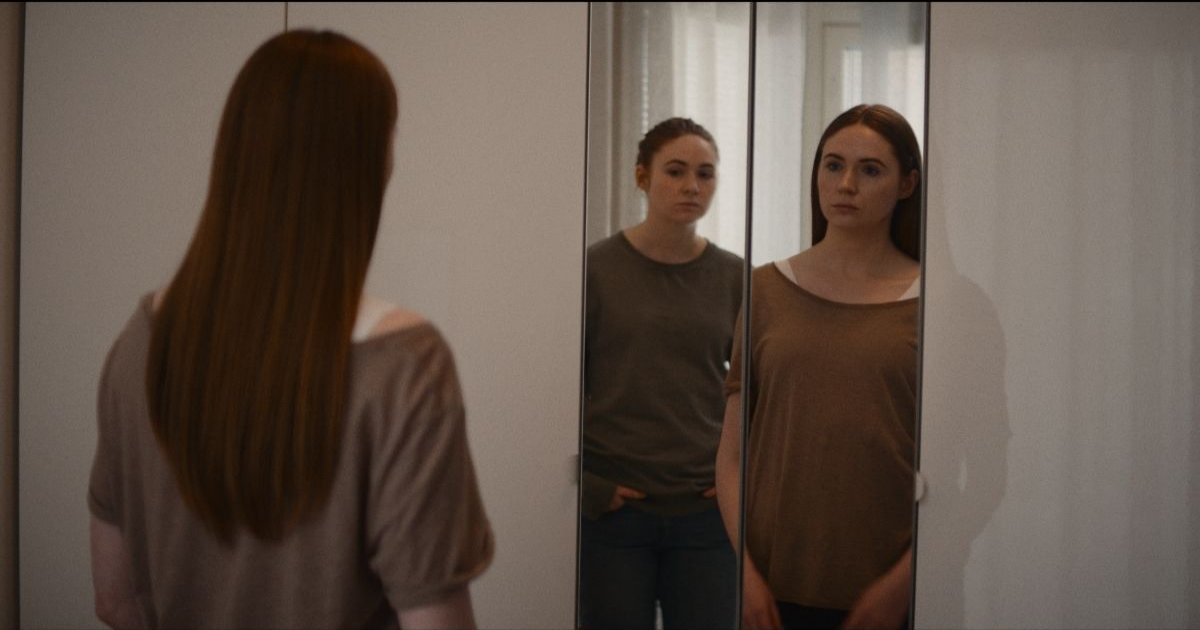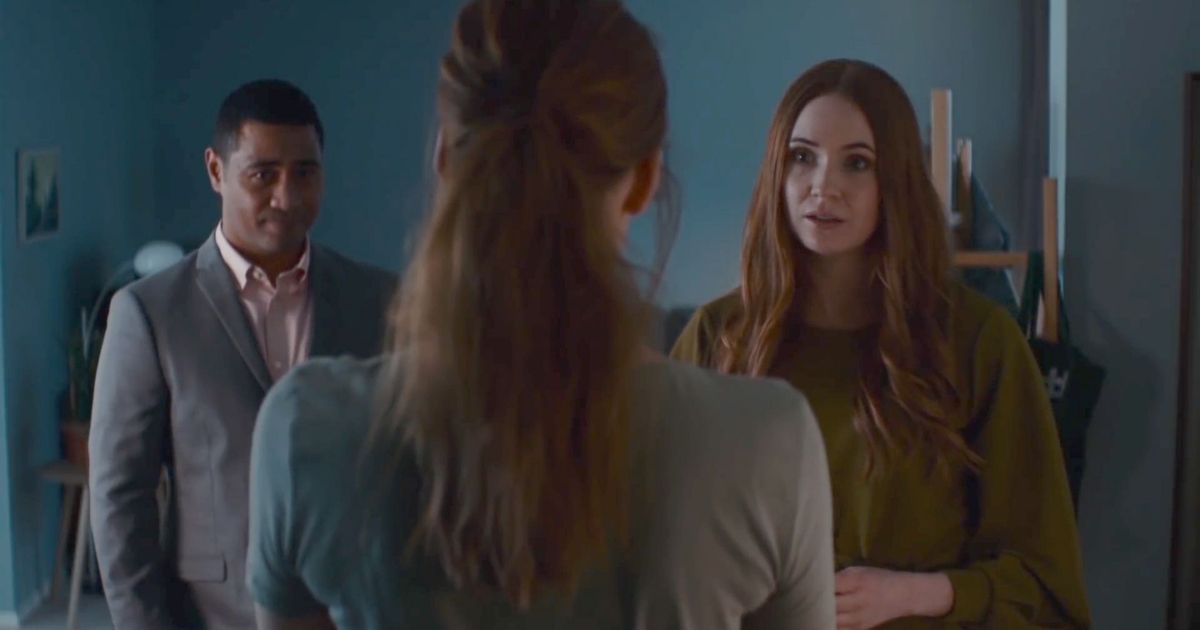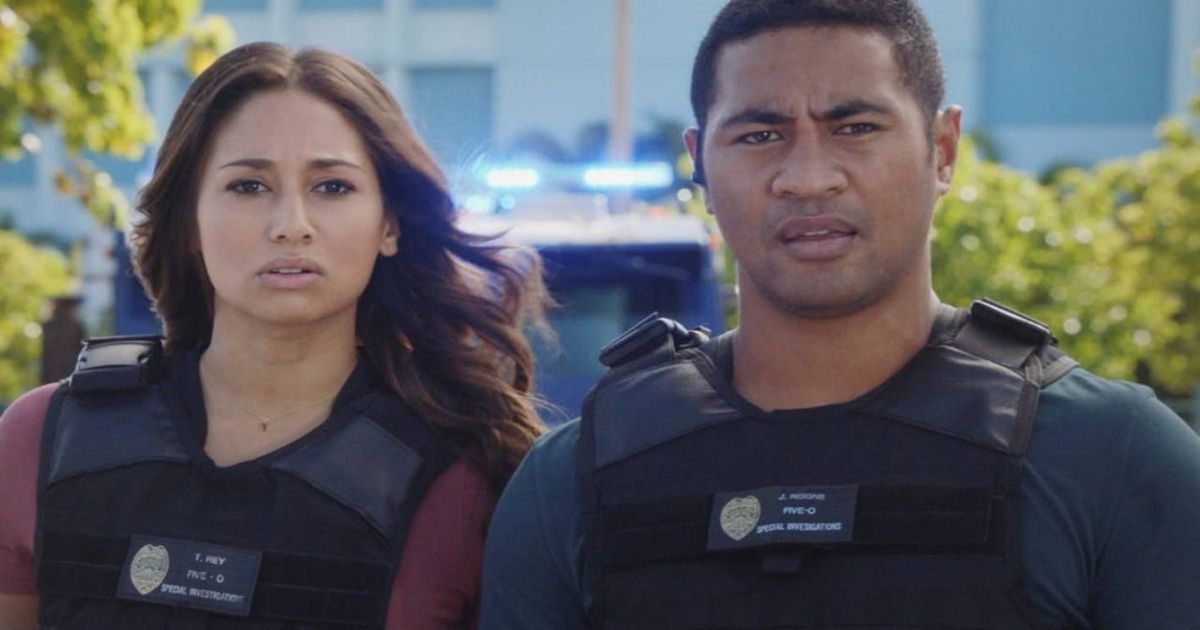Beulah Koale had spent his last $50 on making an audition tape. The videographer extended his hand for payment, and one can imagine Koale looking back and forth from the open palm to the empty refrigerator. "I was like, dude, I haven’t got it," Koale said. "I’m struggling to find the money for dinner. He said, 'that’s what it costs,' and I thought, I guess I’m not eating this week."
Fast-forward five frenetic years, and the New Zealand actor has come a long way from the moving underdog story reported in Deadline, which had introduced the actor to many. Koale thinks about that article and that period of his life. for the first time in a
"I got goosebumps just thinking about it now." It's been a fast-paced journey out of poverty and violent sports in South Auckland, toward being discovered by Jason Hall, the Oscar-nominated screenwriter of American Sniper, for a powerful role in the 2017 film Thank You For Your Service.
Beaulah Koale, Then and Now
When Koale finally made it to Hollywood, he initially had a difficult time adjusting. He spent a week eating free apples from a gym in order to avoid confrontation and having to ask for help, before being told that the producers of Thank You For Your Service were paying for everything, and finally succumbing to the kindness of others.
"I remember that kid. It was his first time coming to America, and he didn't know how to ask for help," Koale reminisces. "It's always kind of how I've been since I was a kid, but over the years I've slowly come out of my shell and learned how to ask for help, and just build some confidence in myself."
Some things are certainly not different. "I try not to lose the hunger that Beulah in 2017 had because literally, he was willing to starve himself to make his movie work, and I would do exactly the same thing. I think that hunger and termination that he had, I still have."
It's almost as if he's charting a course for himself, navigating the choppy waters of a turbulent industry by creating multiple rules and goals to keep him sailing smoothly.
I'm big on setting some goals for myself and finding out a way to achieve that. Now I have a lot more experience [but] I hope to never lose that same kid. It's kind of a rule I've always told myself since I was 21. I wrote a theater piece for myself, and I said, "I hope you never lose the kid that's within you, because that kid will always be a kid, you'll just be a little bit older."
Riley Stearns and Dual
After working on the popular TV reboot of Hawaii Five-O for three years and 71 episodes, Koale is now starring opposite Karen Gillan and Aaron Paul in the film Dual. Riley Stearns' new movie is set in a society where nearly perfect clones can be created as a substitute for people. When a woman named Sarah (Gillan) believes that she is terminally ill, she gets a double of herself made.
However, as a year passes with her going into remission, she recovers from her strange disease and realizes that everyone (including her boyfriend, played by Koale) likes her double more than Sarah herself. Two of the same people can't stay alive simultaneously for long, though, and the double refuses to be 'decommissioned,' so the two must fight to the death in order to determine which Sarah gets to live. Thus, it's Karen Gillan versus Karen Gillan.
As always with Stearns, the plot synopsis barely reflects the film itself, which continues the extremely unique style of filmmaking he's laid out for himself after Faults and, especially, The Art of Self-Defense. Outside of perhaps Yorgos Lanthimos' films The Lobster and Dogtooth, ("I saw Dogtooth when it came out, and it blew me away in a way that I don’t think a film had at the time," Stearns has said), there really isn't anything else like the writer/director's work right now.
Stearns creates largely absurdist comedy-dramas with a heightened sense of artificiality, intentionally stripping much of the emotion and melodrama from the end result. It's an approach partly developed over the years by directors like Hal Hartley, Aki Kaurismaki, and Hal Ashby, but Stearns takes it to another level.
Koale and the 'Dual' School of Acting
Acting in a Stearns film probably seems counterintuitive to many actors, who are often trained or directed to act completely different from what Stearns prefers, which is a kind of cold and ironic sense of detachment somewhere between Samuel Beckett and Robert Bresson. Actors in his films probably have to unlearn a lot of the impulses they've developed. However, Koale has a bit of an upper hand here. "I didn't go to school to learn how to act," he says. Echoing some stars who originally had different careers before acting, Koale says, "I didn't even want to be an actor, I just turned up to skip classes." It turned out, however, that acting practically saved his life.
I used to carry around this anger, and I used rugby to just release the anger from my life. It took a drama teacher in high school to tell me that you can use acting [...] to let out other emotions. And I remember being 17 or 16 at the time, looking at the teacher and going, "What do you mean?" She said that you can let out love, you can let out anger, you can let out hate, a bunch of other emotions, and I questioned her. "So I just use different parts of my life?" And she said, yeah, you just use that, and I was like — that's enough? Yeah, that's enough.
This was one of the first "light bulb moments" Koale had in regard to what acting can be. Working on Stearns' film, he had another, in what will assumably be a long lane of lights. Dual is a sci-fi comedy movie of sorts, though the genres (as well as any other label) apply to the film in only vague and tangential ways. There's a lot of strange humor in Dual, and Koale had mostly done very serious work with often tortured or melancholic characters.
"I was always scared of this type of genre," Koale says about comedy. "I don't know how to do it, which is kind of what pulled me towards wanting to do this role. There's a rule I have for myself: I run towards the things I'm scared of. And I remember coming on set and talking to Riley and going, dude, I don't know what I'm doing." It didn't take long, however, before Stearns was explaining his style to the actor, like a "mastership and an apprentice," as Koale describes it.
"You kind of learn bad habits as you do TV and film, and just as an actor, and then Riley came in just cutting all my bad habits. He's like, 'Just say the words, let the words do the magic.'" It's a different approach for most actors, one which his co-star Karen Gillan has recently described as surprisingly vulnerable, stripping an actor of all the artifice, techniques, and subterfuge that can disguise or create padding for their authentic selves. Koale agrees, saying, "It was like the rawest form of doing what we do because we had nothing to really hide behind. Except to say it, just say it and see what happens and whatever happens will be honest at that moment."
Coincidentally, actors learning how to simply read the text and let the text read them was the subject of this year's Best International Feature Oscar winner, Drive My Car. Koale agrees it was an almost hypnotically powerful approach, saying, "You don't need to do anything else to it. It will happen. And it does. It was a light bulb moment for me."
This style is almost part of a new kind of cinema quietly emerging, initially in the arthouse scene and now breaking through into the mainstream. Stearns' approach is similar to the aforementioned Lanthimos, who told The Globe and Mail, "All I do is encourage them to just say the words, to be there, to do it, and they themselves understand if it’s the right way or the wrong way.”
Taika Waititi and Koale's Acting Future
No matter the style of acting, though, Koale is incredibly dedicated to it and fortunate for it; he gives it everything it's given him. "Acting has given my family a lifestyle that I didn't grow up with. It's the thing that I'm addicted to, like, I think about my craft 24/7, and I would be the same if I went down the rugby path. That's just how my brain works, I'm very driven." On the set of Dual, he kept a constant journal, writing about his fictional character: what music he listened to, how he was a terrible dancer, the kind of YouTube videos he watched. "There's not a moment that I don't stop thinking about my job. It's definitely told me in the last couple of years that this is me for the rest of my life pretty much."
The light bulbs will surely keep flickering, lighting the rest of Koale's life in some way or other. He took some of the comic skills he learned with Dual and the confidence he's been developing and applied it to the new Taika Waititi film, Next Goal Wins. Waititi's one of the hottest directors right now, doing everything from major Marvel movies, to the Oscar-winning Jojo Rabbit, to the wacky TV series Our Flag Means Death and What We Do in the Shadows. He's also a New Zealander, and he, Koale, and various Australian and New Zealand talents got together to shoot Waititi's fun soccer movie based on a true story, featuring Michael Fassbender and Elisabeth Moss.
Working with Stearns and Waititi, Koale's become more comfortable in his skin and learned to just be himself, because he's enough. "Both directors are great, because they just do their style," he says, "they know who they are, and just do it. That gives me a lot of confidence in just going, yeah, I'm just gonna do me as an actor. That's enough."
Beulah Koale took a $50 bet on himself, which is a lot of money when one's in poverty. It paid off richly for not just him, but audiences as well. Dual is in theaters on April 15th.

